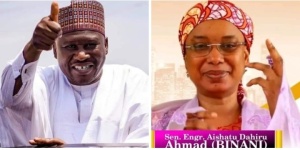The Nigeria Labour Congress (NLC) has encountered a setback in its planned industrial action scheduled for Wednesday, as divisions within the union have emerged, with the South-west and northern states’ chapters withdrawing their support for the proposed strike, according to sources. This development comes amidst accusations by Bayo Onanuga, one of the spokespersons for the All Progressives Congress (APC), who alleges that NLC President Joe Ajaero is working for the Labour Party (LP) and attempting to destabilize the newly inaugurated government through the planned strike.
However, despite the divisions, the NLC has written to all its 43 affiliate unions, urging them to mobilize for the scheduled industrial action in order to make it effective. The strike is in response to the removal of petrol subsidy, which has led to an increase in the pump price of petrol. Some of the affiliate unions include the Academic Staff Union of Universities (ASUU), Academic Staff Union of Polytechnics (ASUP), Nigeria Union of Teachers (NUT), Judicial Staff Union of Nigeria (JUSUN), and National Association of Nigeria Nurses and Midwives (NANNM), among others.
Meanwhile, Atiku Abubakar, the presidential candidate of the Peoples Democratic Party (PDP) in the 2023 general election, has weighed in on the controversy surrounding the removal of subsidy by President Bola Tinubu. Atiku refers to Tinubu’s administration as a “temporary government” and expresses confidence in reclaiming his alleged “stolen mandate” through the court.
During his inaugural speech, President Tinubu announced the end of fuel subsidy payments, stating that the 2023 budget does not allocate funds for subsidy and that the government will redirect resources towards infrastructure and economic strengthening. This declaration resulted in the reemergence of fuel queues across the country, with Nigerians expressing dissatisfaction over the sharp increase in petrol prices.
To alleviate the hardship caused by the removal of subsidy, President Tinubu later promised to review the minimum wage to align with the current economic realities of the country. He emphasized the need for the federal and state governments to jointly assess the minimum wage and enhance the generation and utilization of the country’s revenue. This announcement was made during his meeting with members of the Progressive Governors Forum (PGF), who expressed their support for the removal of subsidy.










